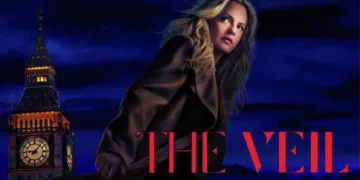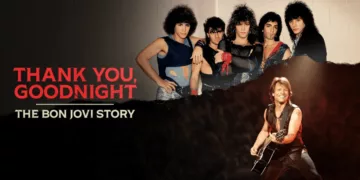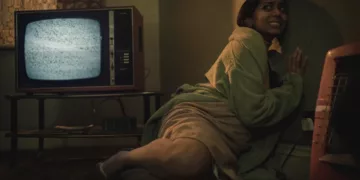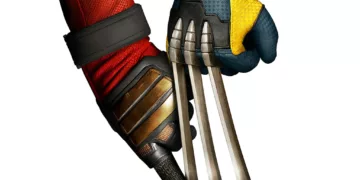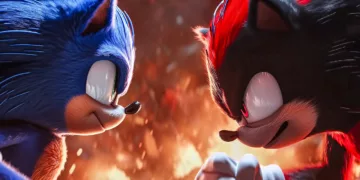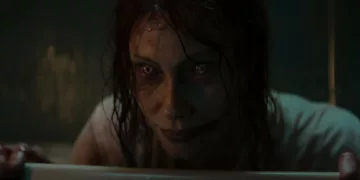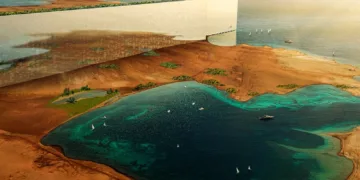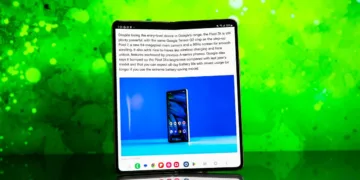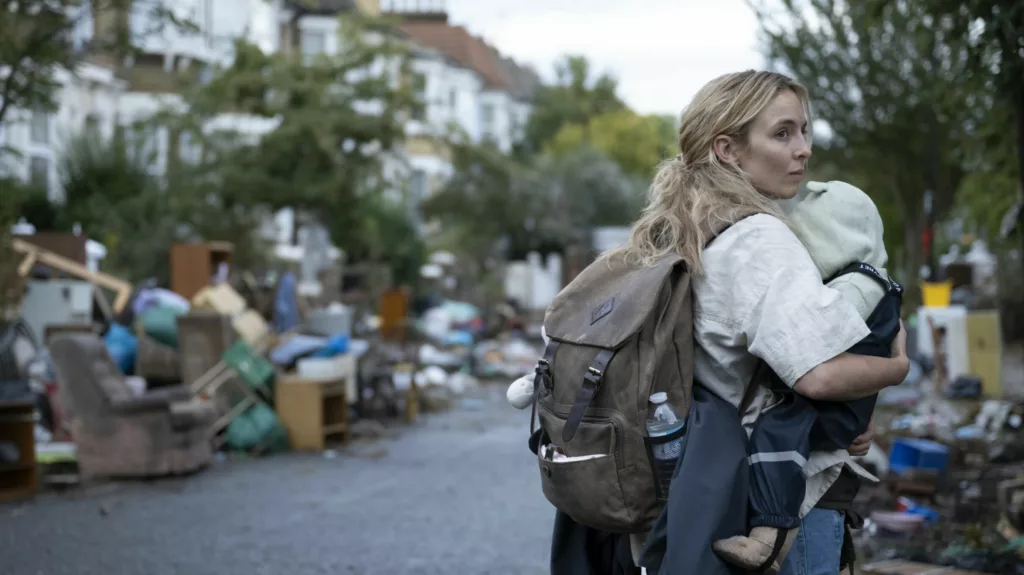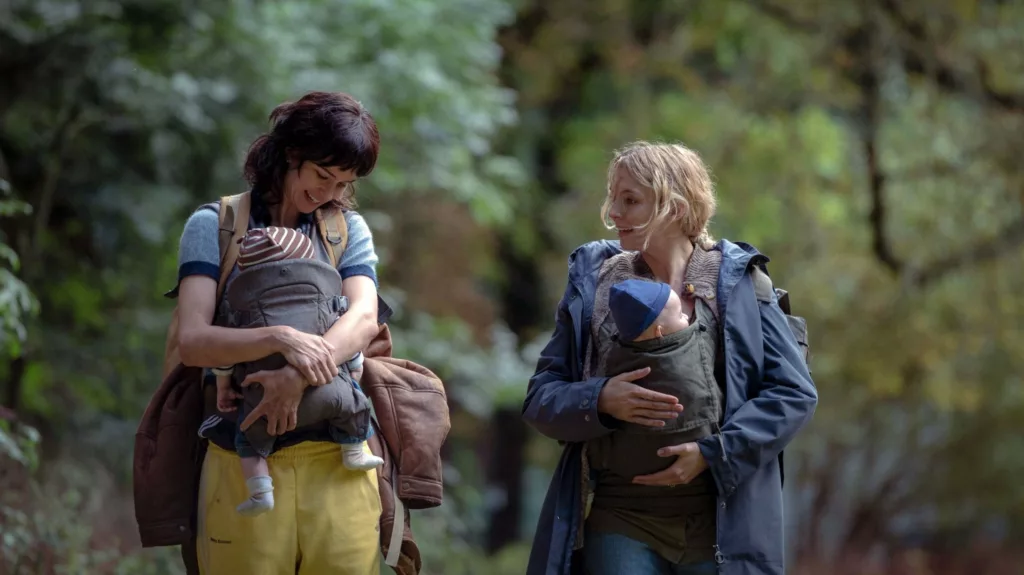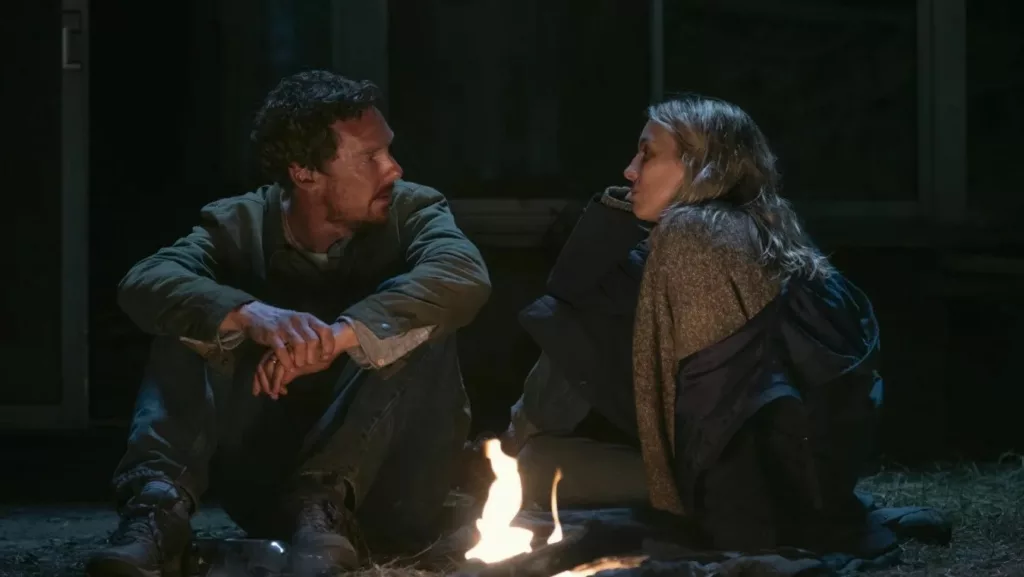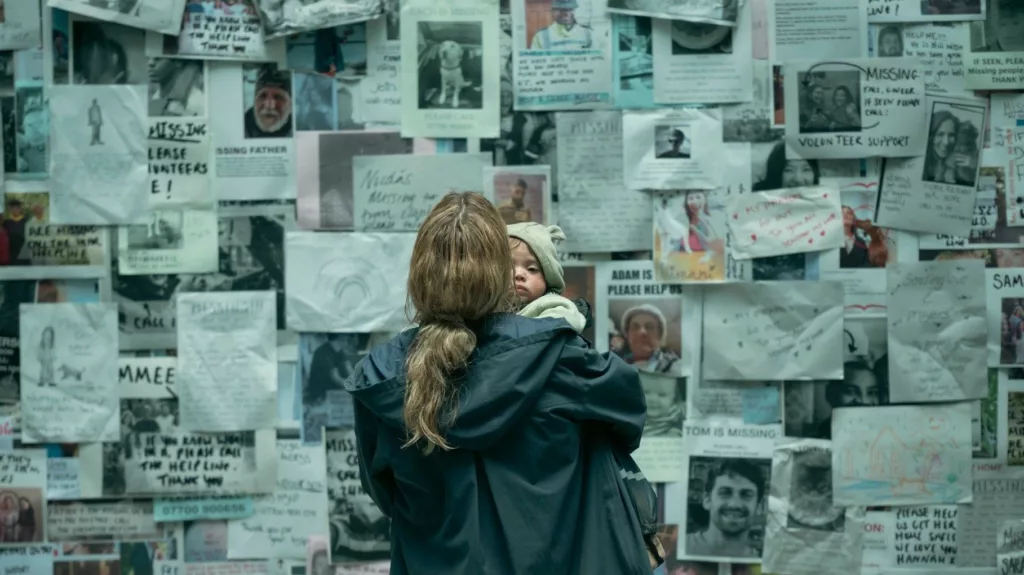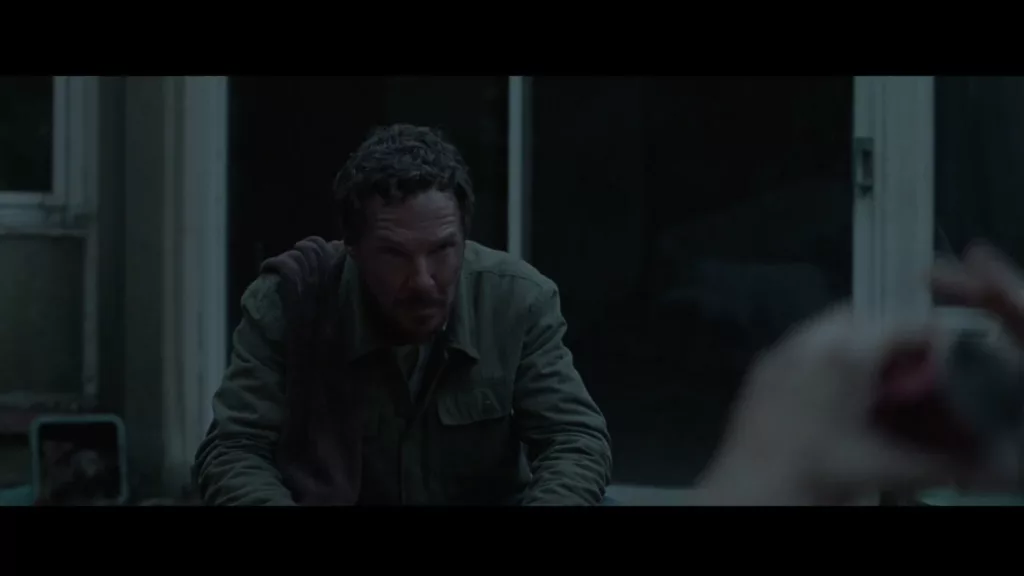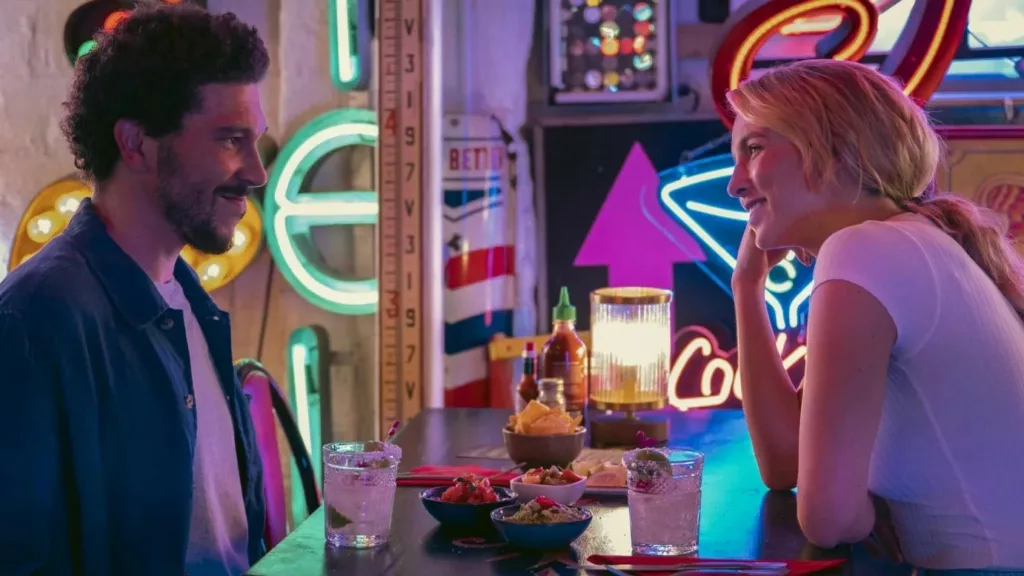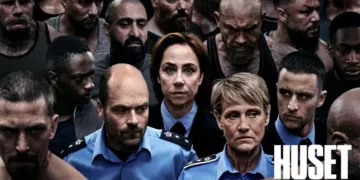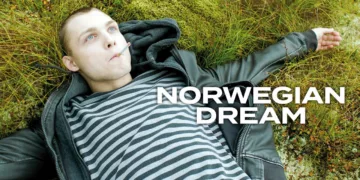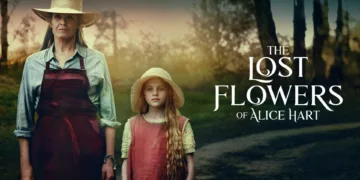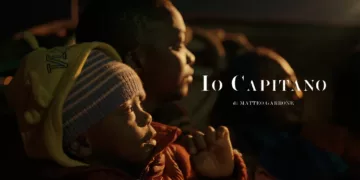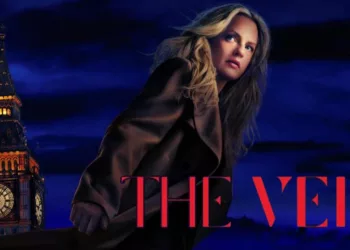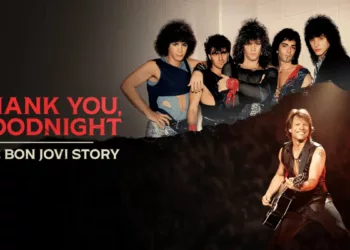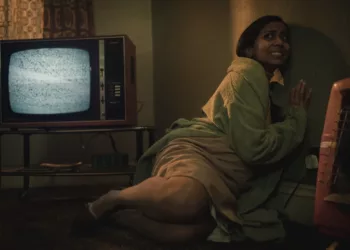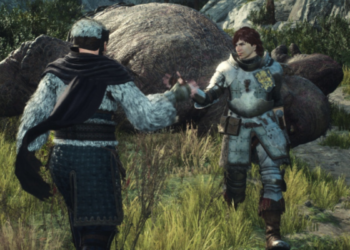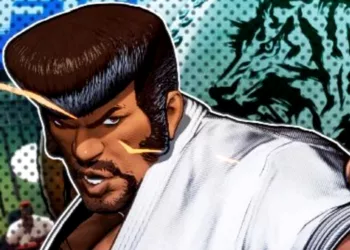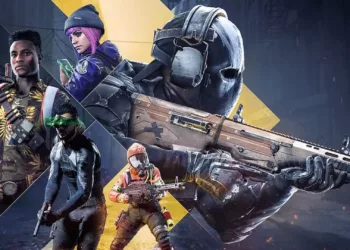Few experiences compare to bringing a new life into the world. But imagine giving birth at the onset of an environmental apocalypse—as floodwaters rise around your home in a soon-to-be-lost city. Sounds intense, right? That harrowing premise drives The End We Start From, the aptly-named latest from up-and-coming director Mahalia Belo. She brings to life an adaptation of Megan Hunter’s acclaimed novel about one London mother’s determination to shield her newborn amidst climate catastrophe.
Leading the charge is Killing Eve standout Jodie Comer as the fiercely devoted, aptly unnamed mother. With sharp dialogue by British screenwriting phenom Alice Birch (Normal People), we embark on a lyrical, stripped-down journey alongside Comer’s character. Struggling for survival, she flees the capital with husband Joel Fry and their minutes-old infant.
Seeking refuge with relatives in the countryside, their nuclear family unit soon fractures under pressure. But one anchor holds steadfast—our heroine’s maternal bond. When connection calls her back toward danger, this protective mom fights on nonetheless. Guided by love for her son, she braves the unknown future arm-in-arm with fellow displaced parent Katherine Waterston.
Braving the Deluge, Together
As The End We Start From opens, Londoner Jodie Comer’s very pregnant protagonist prepares to welcome new life just as her world falls apart. Floodwaters besiege the capital, breaking windows in her home mid-contraction. The chaotic hospital birth of son “Z” offers little respite for our newly minted mom. As conditions deteriorate, she, husband Joel Fry, and their infant flee north seeking safety.
Touching down at Fry’s parents’ rural cabin, the young family regroups. But Mother Nature’s wrath continues unabated, food grows scarce, and society frays at the edges. Despite risks lurking outdoors, Fry departs to gather provisions for their survival. Returning bloodied and traumatized, he warns of the savagery overtaking England’s countryside. Seeking continued refuge, the couple soon suffers crushing personal loss.
Reeling emotionally, Fry abandons his family, claiming powerlessness to protect them. Now isolated with her baby, Jodie Comer’s character desperately needs an ally. She discovers one while sheltering alongside additional displaced persons. Katherine Waterston shines as a quick-witted, world-weary mother named “O” in similar straits. After weathering a vicious raid side-by-side, the two moms band together towards rumored island sanctuary.
Their journey traverses a battle-scarred nation dotted with Climate Refugees. Highlights include a dancer’s respite courtesy of Benedict Cumberbatch’s grieving widower. Despite reaching the ocean-bound utopia, Comer yearns for her old life and lost love. As news filters in that London may again be habitable, she contemplates a solo trek back to reclaim the past. But with trusty fellow sojourner Waterston and baby “Z” dependent upon her, can one woman prevail against nature’s unpredictable wrath?
Explore the Depths of Self-Discovery: “Immerse yourself in a poignant journey of identity and resilience with our Norwegian Dream review. Discover how this film masterfully portrays the struggles and triumphs of self-acceptance in a foreign land. Read our in-depth review now!”
Examining Existence in Extremis
Beyond its climate crisis backdrop, The End We Start From explores timeless questions of purpose through rich thematic layers. Most pointedly, Mahalia Belo’s film celebrates the ferocious strength of mothers protecting their young. Jodie Comer’s protagonist confronts an uncaring world with her newborn son as sole motivation. Through her eyes, we witness the primal instinct driving parents—especially mothers—to sustain life against the odds. She would move mountains for her child, and that bond propels them both forward when all else crumbles.
This observation extends towards broader commentary on women’s resilience. Comer and Katherine Waterston’s equally defiant character “O” discover solidarity as disasters magnify gender inequality. Bereft of male protection, the two moms empower each other relying only on their own grit. (Cue a few not-so-subtle jabs at the uselessness of certain male figures first to abandon them.) Together, they bravely spearhead the quest for stability and regeneration. Their sororal support fuels dreams that their kids might inherit a hopeful future.
Juxtaposing the promise of new generations with environmental ruin, The End We Start From provokes reflection on bringing babies into a precarious world. Is it ethical, the film asks, to expose innocent life to such uncertainty? Yet Bleo ultimately argues for pragmatic optimism even in our planet’s darkest hour. Her lyrical treatment locates beauty persisting alongside brutality, from soothing nature vistas to unexpected kindnesses between victims of tragedy. Life is cyclical, mortality certain, but human connections recreate meaning amidst chaos.
Finally, the film’s credibility serves as a chilling climate wake-up call. Unlike bombastic CGI-fests portraying doomsday as spectacular fantasy, Bleo’s grounded approach forewarns this slow-motion collapse could be our civilization’s fate. Let The End We Start From serve as a cautionary tale, inspiring audiences to demand environmental action before such flooding deluges our own communities. For this sci-fi story’s ingredients already percolate in plain sight, from extreme weather upending lives to society’s fragmentation when the social contract dissolves. Heed its message before the credits roll: our future—and our children’s—balances precariously unless we change course today.
“Step behind the bars of a Danish prison with our Prisoner review, a series that starkly portrays the harsh realities of life for both inmates and guards. This gritty drama explores complex themes of morality, violence, and redemption, making it a compelling watch for those interested in the human condition under extreme circumstances.”
An Intimate Lens on Impending Tragedy
Rather than bombard us with CGI catastrophe porn, The End We Start From masterfully exploits its modest budget to hone intense emotional impact. Through thoughtful composition and symbolic use of the natural landscape, Mahalia Belo’s direction channels climate anxiety into moving human drama.
We open on the rising bathwater flooding our heroine’s London home, liquid peril intruding as new life germinates. This suggestive imagery recurs via frequent interludes gazing at the angry tide surging beyond. Water represents the danger that unifies a nation of survivors, while also reflecting the protagonist’s turbulent inner world as she confronts profound loss.
Yet Bleo artfully juxtaposes scenes of crisis against luminous rural vistas. Over Jodie Comer’s shoulder, we observe rolling green meadows and endless oceanside horizons. These painterly shots envision the resurrection of environmental grandeur, once humanity curtails our harmful footprint. The Earth endures, hints Belo, and could again thrive if we enable its resilience.
Bleo’s lens rarely strays far from her lead actress’s expressive face. Via sustained close-ups, Comer externalizes her character’s complex emotional journey from terror to tentative hope. Pain, determination and hints of optimism play out in Comer’s eyes as she perseveres for her child’s sake. This tight directorial perspective realizes a gritty, ground-level experience of social breakdown, while accentuating the transcendent power of a mother’s love.
Humanity Emerges Through Standout Turns
At the heart of The End We Start From’s impact rests a raw, riveting lead performance from Jodie Comer. The Killing Eve Emmy winner disappears into her protective mother role, navigating harrowing circumstances with subtle depth. Through conviction in her eyes, Comer grounds larger-than-life events in palpable emotion. We believe her unwavering devotion to her son, conveyed through tender gestures and F-bombs alike. And we invest in their quest for refuge or reunification thanks to her spirited defiance of the odds. Comer inspires empathy tinged with hope—a heroic feat given the world crumbling around her character.
In lighter contrast, Katherine Waterston leavens the gloom as fellow wayfared mother “O.” Exuding jaded warmth, her lively charisma enlivens Comer’s stoic journey towards possible sanctuary. Waterston projects both vulnerability and spark, forging an endearing foil for our protagonist. When she insists “We’re going to be okay” despite adversity, we feel inclined to trust her.
Additional standouts include Joel Fry as the well-meaning but overwhelmed husband and father. Displaying believable psychological dissolution, he elicits more pity than scorn for defecting from fatherly duties. Meanwhile Mark Strong’s and Nina Sosanya’s kindly elders provide grounding stability amid surrounding turmoil.
Rounding out the ensemble, Benedict Cumberbatch makes an eccentric cameo as a widower who trades dance lessons for aid. His eccentric turn adds welcome levity, renewing The End We Start From’s themes of human generosity shining through darkness.
Through their combined talents, the cast enriches a suspenseful premise into an insightful examination of individual willpower versus societal collapse. Their compelling work provokes self-reflection: how would we each cope facing this hypothetical armageddon? Could any of us match their resilience? Their spirited emotional odysseys urge us to search our souls.
Evocative Minimalism True to Source Material
In translating Megan Hunter’s compact novella, screenwriter Alice Birch embraces overt artfulness over accessibility. Her script distills the dystopian narrative to its exquisite essence, paring down dialogue to intensify the emotional core. We glean sparse details about character backgrounds or societal downfall. Instead, The End We Start From immerses us in the resilient mindset of those facing extinction events.
This stark approach extends through a bracingly authentic childbirth scene. Depicting the bloody, painful realities of labor and delivery, Mahalia Belo refuses to flinch. She also denies the protagonist comforting medical intervention when crisis strikes, heightening the sequence’s nerve-shredding power. This harrowing introduction thoroughly grounds us in the high stakes of protecting new life when infrastructure crumbles.
While Birch’s script confronts lofty questions, she allows provocative themes to emerge organically. Without didactic soapbox moments, we ponder an unborn generation’s uncertain future given environmental turmoil. We observe gender dynamics under stress, as men abdicate caregiver duties. And through a protective mother’s eyes, we weigh personal aspirations against a child’s immediate welfare. By embedding hot-button topics within intimate character beats, the film maintains emotional honesty over political proselytizing.
Throughout their disciplined adaptation, Belo and Birch honor author Megan Hunter’s lyrical meditation on societal collapse. Its haunting vignettes translate into stirring visual poetry, from eerie flood footage to luminous pastoral interludes. Sparse exchanges give way to silent sequences weighted with loss and discovery. The End We Start From doesn’t offer easy answers about combatting climate catastrophe or rebuilding broken communities. It merely holds space for viewers to contemplate human impermanence against nature’s force. Just as Hunter found grace notes amidst planetary tragedy, so too does this bravely consoling film.
Evoking the Spirit of Poignant Predecessors
Within the crowded eco-thriller genre, The End We Start From distinguishes itself through quietude over spectacle. Forgoing bombastic disaster porn, Mahalia Belo’s drama shares DNA with similarly thoughtful efforts spotlighting human resilience.
Her character-driven priority and sustained handheld tension echo Children of Men. Bleo strip away CGI bells and whistles to trail one parent’s fierce determination through societal wreckage. Imagining tomorrow’s tragedies through an everyday lens grounds fantastical scenarios in plausibility.
Bleo’s hybrid of gritty realism with melodic score also evokes The Road. Awash in hopelessness yet lifted by unlikely beauty, both films locate faith in family bonds amidst apocalypses. Their ravaged visuals critique humanity’s self-destruction while discovering transcendence in parental love.
Finally, Take Shelter’s examination of climate anxiety resonates within The End We Start From. As an oncoming storm confounds Michael Shannon’s protagonist, Bleo’s Everymother confronts an environmental reality even experts failed to anticipate. Where can one find security with the future obscured? The answer for both lies in relying on those closest as warning signs flash red.
Of course The End We Start From charts its own course thematically, refusing reprieve via third-act heroics or romanticized endurance. Befitting our precarious moment, Jodie Comer’s journey offers no definitive outcome beyond a mother and child’s continued interdependence. Yet its spiritual cousins share a plea for collective responsibility and moral imagination as existential threats loom. Heeding their warnings, Bleo’s film may rouse audiences toward activism in addition to catharsis.
Grace Under Pressure, Together Until the End
Movies set beyond civilization’s collapse often emphasize spectacle over intimacy. Not so with The End We Start From, which locates hope in human connections when the planet’s future remains uncertain. Anchored by a career-highlight Jodie Comer, Mahalia Belo’s heartrending adaptation locates resilience inside each of us, not defined by heroic bravado but daily perseverance alongside trusted companions. It’s a call to communally confront looming environmental threats, privileging empathy and moral courage over fear or isolationism.
Belo emerged five years ago with feature debut Letter to the King, her confident vision equally at home with coming-of-age adventures or encroaching social breakdowns. Here she grounds dire scenarios in emotional authenticity, dynamically assisted by cinematographer Suzie Lavelle and composer Anna Meredith. While large-scale disaster unfolds mostly off-screen, we concentrate on intimate portraits etched across Comer and Katherine Waterston’s striking visages. Their wordless sequences convey boundless subtext regarding gender and survival.
Like its clear-eyed subjects, The End We Start From declines superficial reassurance about overcoming tribulations. The results may be bleak, but truthful art often is. What elevates Belo’s work is its insistence on uplift grounded in reality—not baseless optimism, but solidarity empowering decent folks to persevere. If we treat others as extensions of our chosen families, her film gently argues, perhaps we can weather any environmental emergency headed this way. And in Comer’s steely mother and Waterston’s good-humored comrade, we find the embodiment of that radical empathetic worldview our divided era sorely needs.
The Review
The End We Start From
Poignant and prophetic, The End We Start From heralds the arrival of Mahalia Belo as a singular artistic voice. Her adaptation of Megan Hunter’s dystopian novella resists simplicity in favor of lyrical observation. Anchored by Jodie Comer’s wrenching lead performance, this migrant mother’s quest for refuge amidst climate catastrophe resonates with harrowing urgency. Let its cautious fable spur audiences towards greater environmental awareness, societal compassion, and personal preparation alike. For if calamity strikes, we’ll depend most on the kindness of those closest, just as Bleo's resilient characters do until the credits roll.
PROS
- Powerful lead performance by Jodie Comer
- Strong direction and cinematography create an intimate, emotional experience
- Thought-provoking themes related to motherhood, climate change, societal breakdown
- Katherine Waterston provides a warm counterbalance
- Realistic approach grounds fanciful premise
CONS
- Sparse dialogue and pacing may frustrate some
- Plot loses momentum in second half
- Some supporting characters feel underdeveloped

